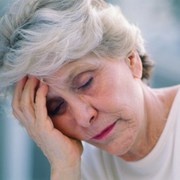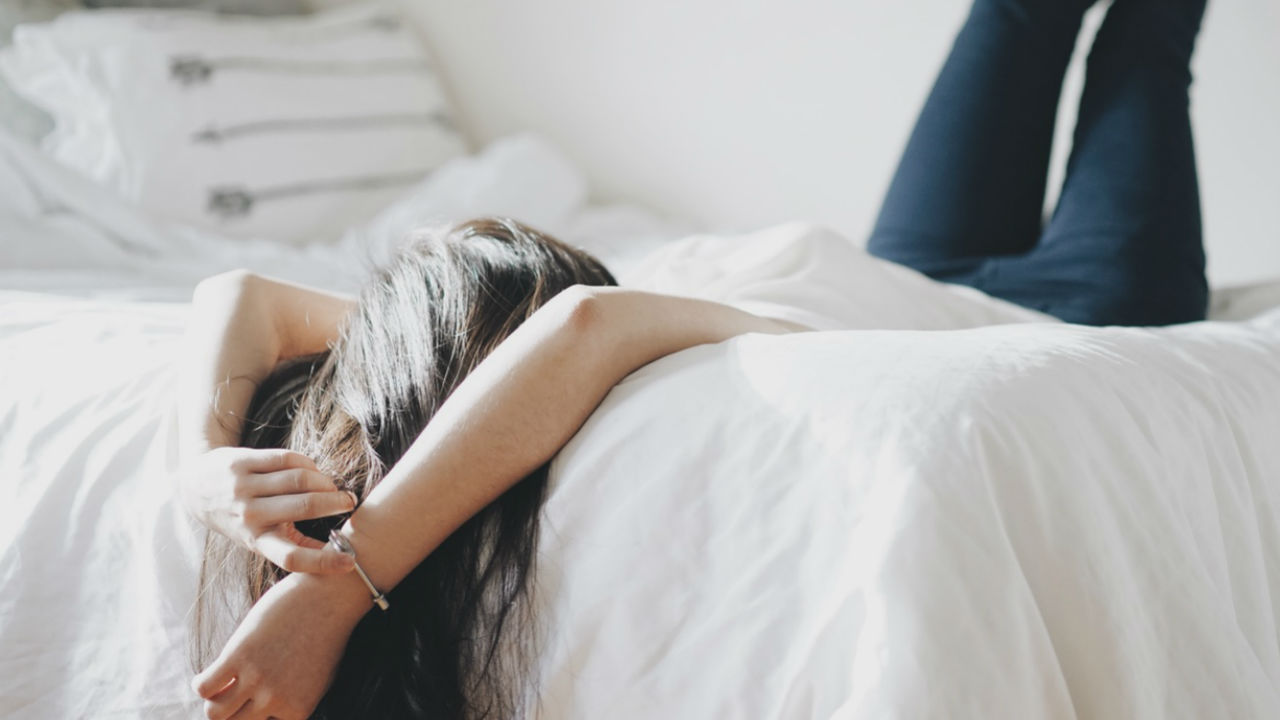 Comstock/Thinkstock
Comstock/Thinkstock
New research has come in from the University of Rochester Medical Center suggesting that older adults who sleep poorly are at an increased risk of developing poor physical and psychological outcomes. This is due to their altered immune system response, which has resulted from the poor sleep pattern. (1)
A particular marker of inflammation associated with poor health and even death, interleukin 6 was found significantly higher in poor sleepers compared to the good sleepers.
Interleukin 6 is a protein found in our blood secreted by T cells which are a type of immune cells that stimulate immune response, inflammation being one such response.
According to assistant professor of Psychiatry at the Medical Center, Kathi L. Heffner, Ph.D, “This study offers more evidence that better sleep not only can improve overall well-being but also may help prevent poor physiological and psychological outcomes associated with inflammation. Our study suggests that, for healthy people, it all comes down to sleep and what poor sleep may be doing to our physiological stress response, our fight or flight response.” (2)
The research that was funded by a grant from the National Institutes of Aging and published in American Journal of Geriatric Psychiatry clearly suggested that though there were other factors of immune dysfunction such as depression, loneliness and perceived stress, it was poor sleep alone that caused a heightened inflammatory response to acute stress.
The study was conducted on 45 women and 38 men of a mean age of 61 years who were in good physical health. They were assessed for their cognitive status and sleep quality. The participants filled out a form on how they perceived stress, loneliness and medication use. Twenty-seven percent of the participants were found to be poor sleepers.
Just prior to the start of the study, blood samples were taken from the participants. Then the study began with the administration of tests that served as stressors (such as verbal tests, working memory tests and a battery of questions).
After this, a blood test was taken again of the volunteers, and again at three intervals spaced out over 60 minutes. The blood was studied for levels of interleukin-6 (IL-6), a protein primarily produced at sites of inflammation.
All the blood samples' post-tests (stressor) were found to have elevated interleukin 6. However the blood samples of those who were poor sleepers exhibited at least a four time greater increase in IL-6 in response to the stressful tests compared to good sleepers, post-test administration.
Later on, more analysis was conducted to study the impact of other factors on inflammation such as loneliness, depression or perceived stress. However, no linkage was found. This clearly isolated poor sleep alone as the predictor of increased inflammation levels.
As per Heffner, “We found no evidence that poor sleep made them deal poorly with a stressful situation. They did just as well on the tests as the good sleepers. We did not expect that. We did find that they were in a worse mood after the stressor than a good sleeper, but that change in mood did not predict the heightened inflammatory response.” (2)
Although a gradual decline of the immune system does occur as a natural process to aging, poor sleep greatly accelerated the process of decline, thus pegging the risk of cardiovascular disease, diabetes and psychiatric problems. This suggests that sleep should be looked into by health care providers for elderly population as a preventative to possible poor health outcomes.
SOURCES:
1. Older Adults Who Sleep Poorly React to Stress With Increased Inflammation; science Daily News; March 2012; http://www.sciencedaily.com/releases/2012/03/120301103758.htm?keepThis=true&TB_iframe=true&height=400&width=850&caption=ScienceDaily%3A+Psychology+News
2. Older Adults Who Sleep Poorly React to Stress with Increased Inflammation; University of Rochester Medical Center Newsroom; March 2012; http://www.urmc.rochester.edu/news/story/index.cfm?id=3421
Technical report of the study may be accessed at:
1. Sleep Disturbance and Older Adults' Inflammatory Responses to Acute Stress; The American Journal of Geriatric Psychiatry; March 2012; http://journals.lww.com/ajgponline/pages/articleviewer.aspx?year=9000&issue=00000&article=99576&type=abstract
INFORMATION IN THIS ARTICLE IS NOT MEDICAL ADVICE. ALL INFORMATION GIVEN IS TO BE CHECKED WITH YOUR DOCTOR BEFORE IMPLEMENTING OR TAKING THEM AS STANDARD OR VERIFIED.
Mamta Singh is a published author of the books Migraines for the Informed Woman – Tips From A Sufferer: ISBN: 978-81-291-1517-1 (Publisher: Rupa & Co. URL: http://www.amazon.com/Migraines-Informed-Woman-Tips-Sufferer/dp/8129115174/ref=sr_1_2?ie=UTF8&s=books&qid=1298990756&sr=1-2), Mentor Your Mind – Tested Mantras For The Busy Woman: ISBN: 978-81-207-5973-2 (Publisher: Sterling Publishers; URL: http://www.amazon.com/Mentor-Your-Mind-Tested-Mantras/dp/8120759737/ref=sr_1_1?ie=UTF8&qid=1316063179&sr=8-1) and the upcoming Women’s Complete Fitness Guide (Publisher: Hay House India).
She is also a seasoned business, creative and academic writer. She is a certified fitness instructor, personal trainer and sports nutritionist through IFA, Florida USA. Mamta is an NCFE-certified Holistic Health Therapist SAC Dip U.K. She is the lead writer and holds Expert Author status in many well-received health, fitness and nutrition sites. She runs her own popular blogs on migraines in women and holistic health.
Mamta holds a double Master's Degree in Commerce and Business. She is a registered practitioner with the UN recognised Art of Living Foundation. Please visit www.mamtasingh.com/
Reviewed April 10, 2012
by Michele Blacksberg
Edited by Jody Smith






Add a CommentComments
There are no comments yet. Be the first one and get the conversation started!